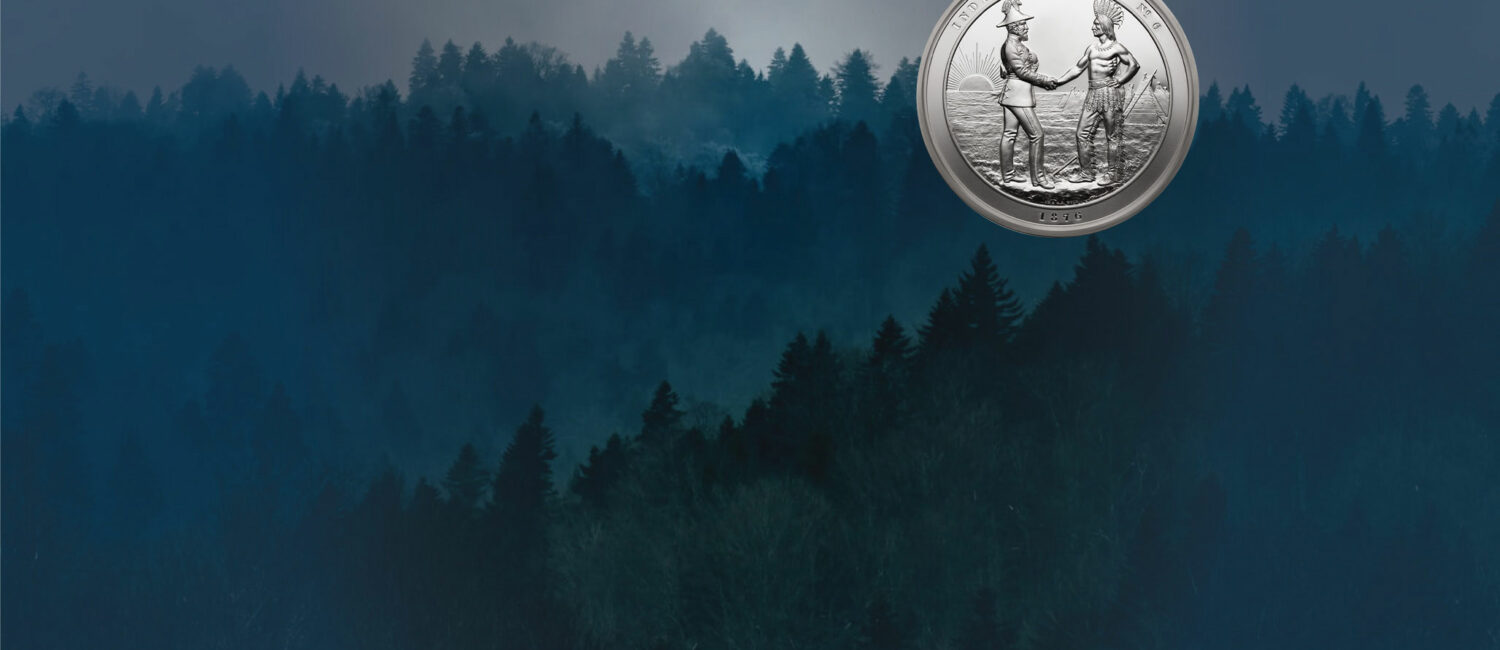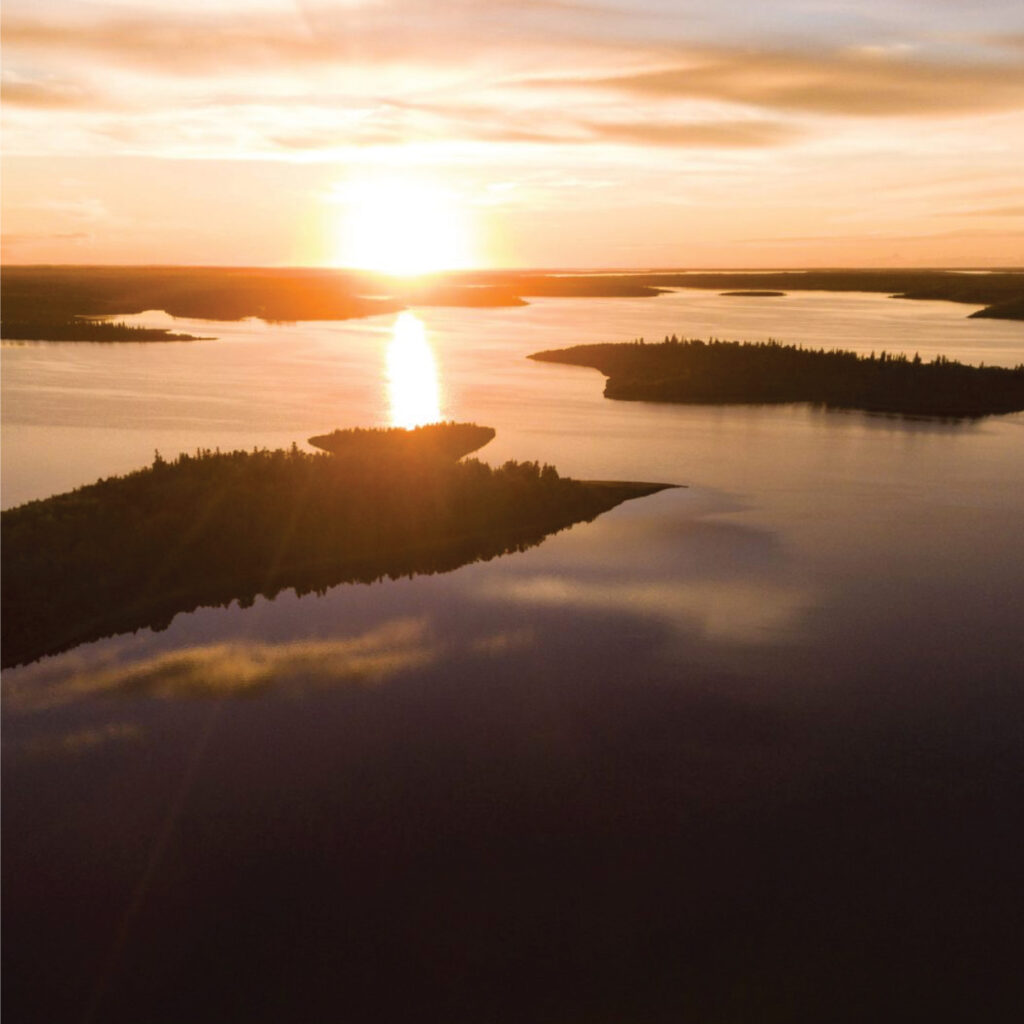
Defend the Treaties
Defend the Treaties. Draw the Line.
The Cree people of the Beaver Lake Cree Nation live in an area of boreal forest the size of Switzerland. In order to protect our homeland and our rights under Treaty No. 6, we are taking the Canadian government and the province of Alberta to court. Our land used to be home to large herds of moose, caribou and elk. Hundreds of freshwater lakes and rivers provided clean water and an abundance of healthy fish. But now, cumulative impacts from industry and development have poisoned water, eliminated whole forests, and decimated traditional food sources for the Beaver Lake Cree Nation people. We had to act.
Beaver Lake Cree Nation is the first ever to challenge and be granted a trial on the cumulative impacts of industrial development. Not one project, not one mine: all of them at once.
Why Is This Case So Important?
This will be the first time the court will have to consider whether the Crown has authorized too much industrial development without meaningful regard to treaty rights. A victory for Beaver Lake Cree Nation would become a strong precedent for all treaty Nations, and all Canadians, to allow for protection of land, air and water for future generations.

Treaties are living agreements between First Nations and the Crown. All Canadians, Indigenous and non-Indigenous, are therefore treaty people. Treaty rights of the original peoples of Canada are affirmed and recognized as central to Canada’s very existence as a Nation by The Constitution Act, 1982.
Yet despite these lofty commitments, Canada continues to turn treaty lands like Beaver Lake Cree Nation’s territory into sacrifice zones. Beaver Lake Cree Nation lands, waters and resources have become all but inaccessible and unusable for the exercise of our rights under Treaty 6. The Supreme Court of Canada has said that although the Crown has a right to authorize land use, there may come a time when treaty rights are rendered meaningless because of too much Crown-authorized land use. Beaver Lake Cree Nation is determined to halt the destruction before it reaches that point. This is what the case is all about.
Current Funding Need
Since 2008, the government has done everything in its power to keep this case out of the courts, but it has failed. Right now we are preparing for a hearing in the Supreme Court of Canada in early fall of 2021. This hearing will decide whether the Crown should contribute toward Beaver Lake Cree Nation’s costs of bringing the case for trial – an important precedent for all other Indigenous Peoples who are having to rely on the courts to ensure their rights are respected.
Practically the greatest challenge Beaver Lake Cree Nation faces is maintaining a steady pace of trial preparation and evidence collection. From the perspective of the governments and industry, delay furthers their approach as it makes it harder to protect the undeveloped lands that remain and avoid the creation of commitments to industry and others.
Pressing this case ahead in a steady way towards a reasonable trial date is a monumental task for our Nation. We are using our own resources to push this case along as best we can but outside financial support is needed to make this case a success. The support of allies like you is needed. Please donate, and participate in sharing this important case with your network.
Beaver Lake Cree Nation is suing the federal and provincial governments for failing to uphold inherent and Treaty rights to fish, hunt, trap, and gather plants and medicines, as guaranteed by Treaty No. 6 and Canada’s Constitution. By authorizing unlimited industrial expansion and development, these governments have allowed our homeland to be despoiled beyond recognition. Lush boreal forest is being gobbled up at an alarming rate. More than 21,000 fossil fuel permits have been issued to date. Impacts from all of these projects threaten to destroy the Beaver Lake Cree Nations way of life —by polluting and fragmenting the land and waters that have sustained them for millennia.
RAVEN is a registered charity with a mandate to raise legal defence funds for Indigenous Nations who are defending rights and territory in court. RAVEN works in partnership with Beaver Lake Cree Nation, fundraising and communicating about the case, collecting and administering donations and grants, and disbursing funds back to the Nation to pay for legal costs.
In 1876, the Crown and the ancestors of Beaver Lake Cree Nation entered into Treaty No. 6, whereby the Crown made a solemn promise that Beaver Lake Cree Nation would be able to maintain their way of life. Since the signing of Treaty 6, the Crown has authorized non-aboriginal land uses including agriculture, oil and gas, settlement and other activities without due regard or respect for Beaver Lake Cree Nations way of life.
This case is the first legal action ever to challenge the cumulative impacts of industrial development in the oil patch. Rather than focusing on infringements to its rights as a result of one project or government regulation, Beaver Lake Cree Nation says that the governments have breached its treaty rights by authorizing too much industrial developmenton our lands. It contends that the cumulative impact of industrial development has fractured the ecosystem, rendering lands, waters and resources inaccessible and unusable for the exercise of our treaty rights.
This trial will be the first time the Court will have to consider whether the Crown has crossed the line when authorizing industrial development without meaningful regard to treaty rights. In this way, the case serves as a vital precedent for Treaty Nations, and indeed all Canadians, to allow for protection of land, air and water for future generations.
This is a precedent-setting, historic case. To prove cumulative impacts on treaty rights, the range of potential evidence is vast. Evidence will need to be collected from the community to describe the treaty promises and their unique way of life, including with respect to the importance of traditional activities such as hunting, fishing, trapping, and gathering.
Ethnographic evidence will be required to describe the original life of the Cree tribe in Beaver Lake Cree Nation territory; the promises made to the signatories of Treaty 6; and the conduct of government after the Treaty was signed. Community and expert witnesses will be required to describe the impacts of industrial development on the land, water and resources, including ecologists, wildlife experts, traditional land use experts, disturbance analysts, and hydrologists. Evidence from the community will be required to address how industrial development has impacted our way of life and culture.
A lawsuit of this magnitude requires a team of dedicated legal experts working full-time towards getting the case to trial. Stepping in to provide access to justice through donating will assist Beaver Lake Cree Nation with much-needed financial support to advance the legal action.
Alberta and Canada have far exceeded the land’s capacity for development by taking up more than 88 per cent of the Beaver Lake Cree Nations traditional territory for industrial development like oil and gas wells. They have recklessly authorized oil sands projects, military facilities and other development without any real regard for the rights of Beaver Lake Cree Nation and other Treaty Nations. As a result, the Beaver Lake Cree Nation territory is now covered with over 35,000 oil and gas sites, 21,700 kilometres of seismic lines, 4,028 kilometres of pipeline and 948 kilometres of road. While any one of these projects by themselves might be tolerable, when taken together they threaten to destroy our way of life and the land that has sustained us for thousands of years. Industrial development like oil sands extraction has polluted most of the water bodies in the region. The sheer size of the area occupied by oil and gas wells and other infrastructure has displaced moose and elk, crippled the caribou population and most traditional hunting and gathering grounds are no longer available.
Beaver Lake Cree Nation
Box 960, Lac La Biche, AB T0A 2C0
Ph: 780.623.4549
Toll Free: 1.877.610.3110
Fax: 780.623.4523

